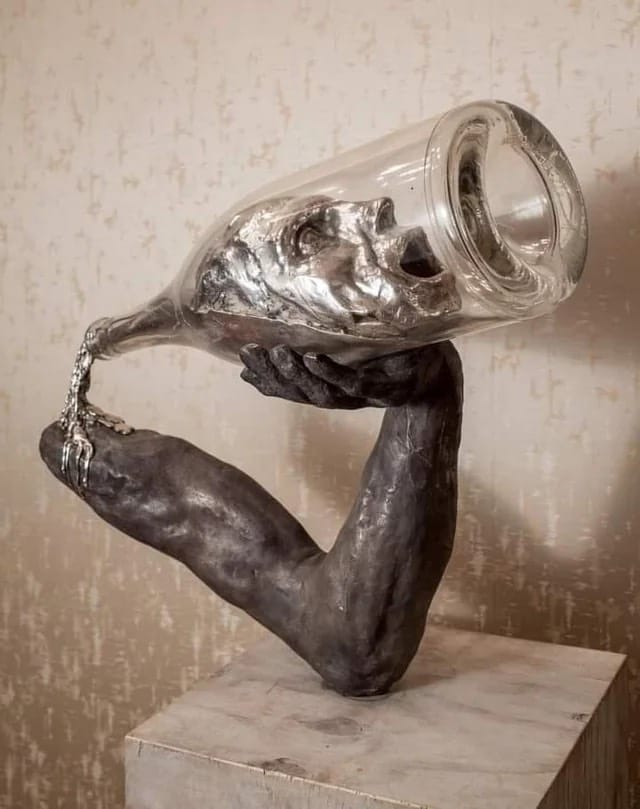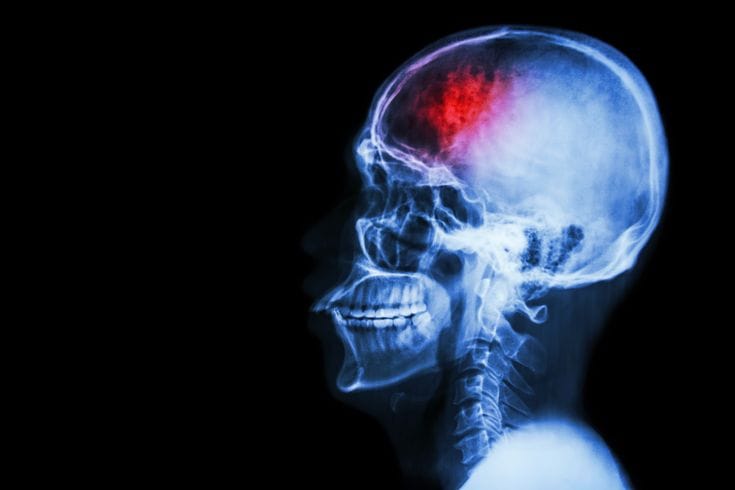“First the man takes a drink, then, the drink takes the man” – Irish saying. Sculpture by Thomas Lerooy
What is the limit to alcohol consumption? When do we deem it too much?
I love how in movies they depict a drunk character usually offending visiting guests or acting a fool at a pub, and the annoyed wife interjects, “Greg, that’s enough now! You are embarrassing me…that’s it! We are going home…you have had too much to drink!”. Art imitates reality. There is some truth to how alcohol, at a certain level, and to a certain extent, influences behaviour. It is a psychoactive substance after all, which basically means that it will affect how the brain perceives, functions, processes stimuli, coordinates reactions and overall judgement.
The National Institute on Alcohol Abuse and Alcoholism recommends limiting drinks to less than two for men and one drink or less for women per day. It is healthier to not consume alcohol for health benefits. Some people are more prone to alcohol misuse than others. Genetic and environmental factors influence this trajectory. Children born of parents with alcohol misuse problems are more prone to developing dependence later in life should they too consume alcohol.
People drink for various reasons- some as a form of socializing for relaxation, fun or stress and anxiety reduction. In moderation, alcohol poses minimal risk to health, but excessively, it can be detrimental in all facets: physically, psychologically, socially and occupationally. It poses health hazards that extends beyond the individual e.g. a drunk driver, violent behaviour, disinhibition.
When do you need help?
There are screening tools doctors use to assess the presence of a problem, and the extent to which one needs assistance. For example the CAGE and AUDIT tools are used to screen for alcohol use in the last year. But today, we will focus on the CAGE tool which comprises of 4 main questions one need to be answered truthfully. Scoring two certain answers reflects a 70% chance of an existing alcohol use problem.
1. Have you ever felt the need to cut down on drinking?
2. Has anyone annoyed you by asking about your drinking?
3. Have you felt guilty about your drinking?
4. Have you ever used alcohol as an eye-opener (drank alcohol first thing in the morning to cure a hangover or to feel functional for the day)? The bold letters thus together spell the CAGE acronym from the tool
Another way to know when you need to adopt changes in having a better relationship with alcohol and seeking professional help is through assessing:
i) How is it affecting your life-are you spending more time working towards getting, or recovering from alcohol intoxication?
ii) Are your relationships negatively affected by it?
iii) Is your occupational life negatively impacted? Are you missing deadlines at work as a result of your activities in and around alcohol? Are you requiring larger amounts to experience the same effect? Are large amounts of it negligible to you now?
iv) Are you experiencing withdrawals when you have not consumed alcohol?
When the screening tool points towards a need to seek help, now what?
The first step to making a positive change is realizing you have a problem. As to the extent of the problem, that is your doctor’s assignment as they walk with you along this journey. Taking it one day at a time with compassion towards yourself is one of the positive things you can do for yourself. There are no shortcuts, it all requires honesty with oneself for how and why you ended up where you are. Walking an honest and open journey with a compassionate therapist to untie those complex knots of your life helps. We all need to be capacitated to deal with stressful life situations and curveballs. With that said… To positive change!
Alcoholics Anonymous – www.aasouthafrica.org.za






No Comments